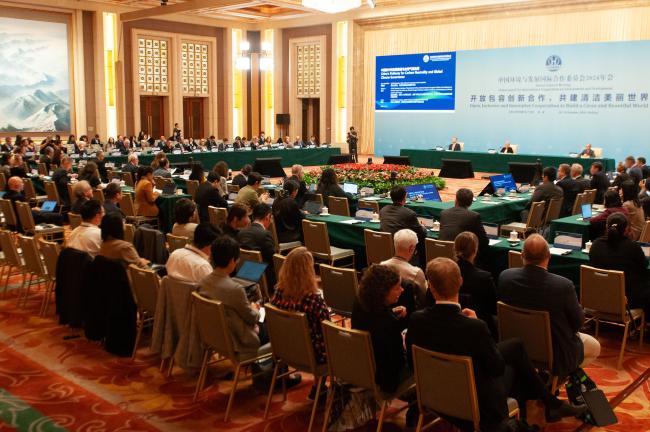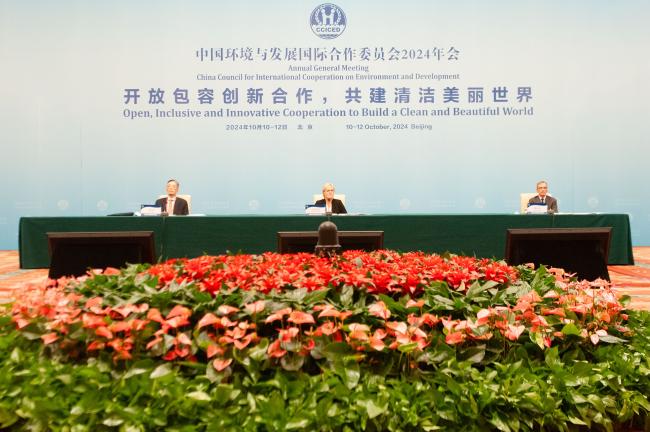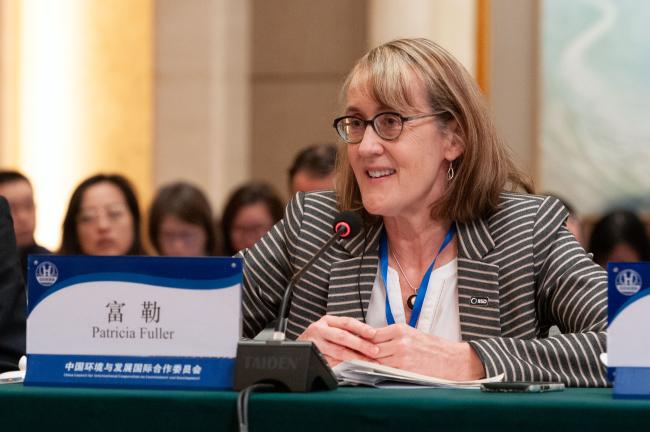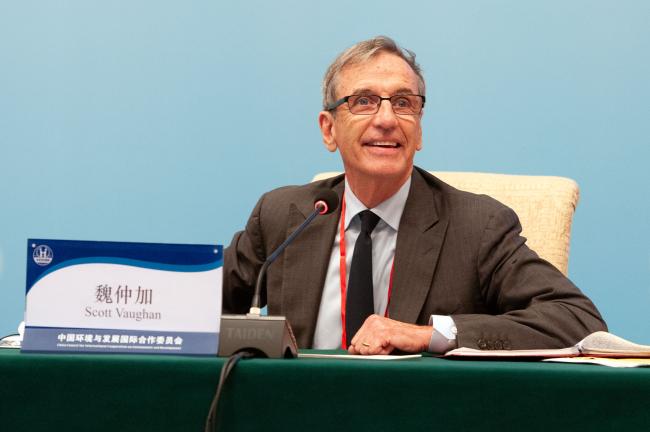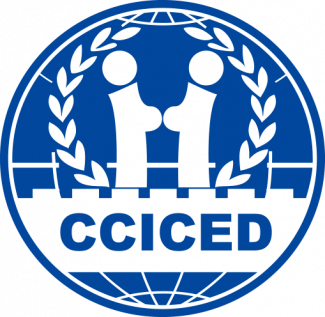Feedback on the sessions of the Annual General Meeting provided much food for thought during the Policy Research Dialogue on the morning of the third day. Creating interlinkages and the importance of joint action based on the different Special Policy Studies (SPS) were among the calls from Council members, special advisers, and invited experts alike.
Following opening remarks, the moderators of Friday’s Open Forums shared recommendations from their discussions.
On implementation of the Kunming-Montreal Global Biodiversity Framework (GBF), feedback focused on the three pillars of implementation of the “30x30” conservation targets, promotion of sustainable agriculture, and mobilization of resources.
On technical support andthe rule of law for enhancing co-control of carbon emissions and air quality, speakers emphasized the importance of aligning legal regimes.
On digitalization and green technologies, the summary of the Forum highlighted needs for long-term adaptation planning at all levels, and the possibilities for digitalization to shape the energy transition.
On promoting green transformation and contributing to the global climate agenda, Forum feedback underlined that we need to increase the scale and speed of climate action, including regarding finance support, and underscored the leading role played by China in the green transition.
On building a green Belt and Road Initiative to advance global South-South cooperation, the Forum summary emphasized the spirit of “Global South solidarity,” highlighting China’s unique role and the need for partnerships to support decarbonization.
On accelerating the blue transition and carbon neutrality, feedback suggested: acceleration of the marine industry’s transformation; strengthening top-level design of the ocean renewable energy industry, including through national strategic plans; and developing an integrated governance strategy on deep-sea mining.
On green finance, the needs for governments to set quantitative climate targets, public funding for innovation to encourage mobilization of private finance, and favorable environments for private equity and venture capital were highlighted.
In a discussion session eliciting general remarks from the SPS teams, the research leads recommended, among other points, to:
- collect better data to measure carbon reduction and coordinate with government agencies and researchers to achieve climate goals;
- develop a strategy to expand clean energy demand while addressing bottlenecks at the micro-level, and advance energy storage, industrial heat pumps, rural housing electrification, and agricultural machinery;
- update nationally determined contributions within the Paris Agreement on climate change by incorporating sustainable blue economy and the green transition of the marine industry, and collaborate with government agencies to create an “ocean and coast belt agenda”; and
- leverage technology as a key enabler, and close the nexus between economic growth, job creation, and environmental outcomes, allowing for scale and replicability.
Participants and speakers recognized that China’s green industries face obstacles from trade protectionism in the form of tariffs. They highlighted possibilities for China to contribute experiences and expertise toward green industrial investment in other countries, acknowledging that countries importing low-carbon technology from China can reduce their own carbon emissions,
The Dialogue concluded with brief highlights and comments from participants, with some noting the valuable shift in the CCICED’s work towards being more practical and targeted.
The Council attended a closed plenary session in the afternoon to discuss outcomes of the AGM and consider the work ahead.
To receive free coverage of global environmental events delivered to your inbox, subscribe to the ENB Update newsletter.
All ENB photos are free to use with attribution. For this event, please use: Photo by IISD/ENB - Diego Noguera
Plenary: Policy Research Dialogue

Liu Shijin, CCICED Chinese Chief Adviser and former Deputy President, Development Research Center of the State Council, China

Kristin Halvorsen, CCICED Vice Chairperson and Director, CICERO Center for International Climate Research

Marco Lambertini, International Leader of the Biodiversity SPS and Convener of the Nature Positive Initiative

A slide from the presentation by Anand Gopal, Executive Director, Policy Research of Energy Innovation

(L-R) Patricia Fuller, President and CEO, IISD, Nathalie Bernasconi-Osterwalder, Vice-President, Global Strategies and Managing Director, Europe, IISD, and Manish Bapna, President and CEO, NRDC

